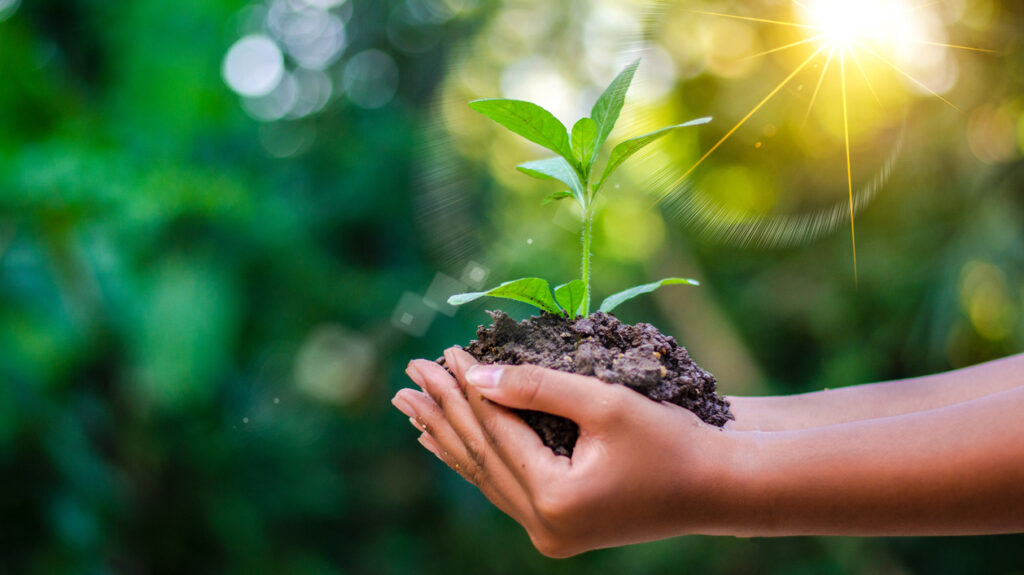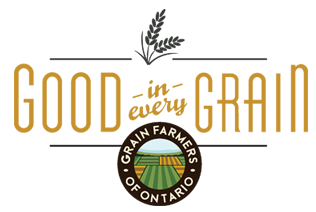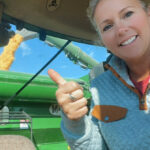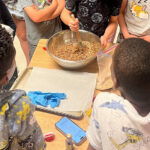Sustainable farming: Ideas for young learners

Sustainability is a hot topic. But it may not always be clear what it is, why it is important, and how to boil this down for young learners. So, let’s talk about it! We’ll point out some helpful resources along the way.
What is sustainability?
To sustain something means to maintain it in the long term without diminishing it. Environmentally, it relates to ensuring resources are not depleted. While we have been talking about “sustainability” in this sense for fewer than 30 years, humans have understood for eons the need to conserve resources, especially for food security.
Today, when we refer to sustainability and farming, we recognize that we need to meet current needs without compromising future generations’ ability to meet their needs. Farmers are at the forefront of attaining that goal.
Farmers: environmental protectors
All farming supports Canadians’ food needs as well as our economy. Grain farmers play an important role in sustaining the environment to ensure future generations will have healthy soil and clean air and water. They protect their farmland in many ways, including reducing tilling, making soil health a priority (without a healthy soil we wouldn’t have healthy food!), safely spraying for pests only as needed, and adopting new technology to be more productive.
Grains: a staple food
Grains, especially whole grains, are good for us! They contain several essential nutrients, including vitamins and minerals, fibre, and protein. And foods like crackers, pasta, oatmeal, and corn flour are easy on our food budgets, delivering great value. We are fortunate in Canada to have a reliable and safe food system that ensures the availability of food all year long to help us sustain healthy lifestyles.
Grains grown in Ontario are barley, grain corn, oats, soybeans, and wheat.
Filling grocery shelves
Farmers think about their role caring for the environment so they can keep filling the grocery shelves for years to come.
Whether they practise their profession in orchards or barns, in fields of grain or vegetables, or among laying hens or larger animals, farmers are the first link in a chain of processes and workers that gets food to our tables and to trading partners.
Before Ontario farmers plant their crops in the spring, they take care of their soil by adding nutrients where they’re missing and checking for pests that will hurt the crop. Many plans and decisions made benefit the environment like rotating what crops are planted into each field each year or planting a cover crop to boost the health of the soil. Sustainable farming practices protect the environment through planting, growing, and harvesting.
As the crop moves through the steps that get it to your plate, many things happen.
For example, after wheat is harvested, it is delivered by truck to a mill where it is quality- tested for several things such as moisture, protein levels, and how clean it is. Once it has passed quality standards, the wheat is cleaned and stored for 24 hours. Then the raw wheat is taken to the milling machines, where it is ground into flour and then blended into the flour blends each bakery or processor wants to make their products, such as bread, noodles, cakes, cookies, or cereals. The leftover part of the wheat kernels—the bran—is sold to a feed mill as an ingredient in animal feed. There is very little waste!
When bakeries or processors receive their flour, they make and package their products, which are shipped to stores where workers put them on shelves, ready for you to purchase. Every day, thousands of people are involved in some aspect of the supply chain that provides Canadians with a steady supply of safe food.
Do you want to stimulate student interest in where their food comes from? Consider adding these books to your classroom library.
Right This Very Minute: A Table-to-Farm Book About Food and Farming – Reading age: 4-8yrs
How Did That Get In My Lunchbox?: The Story of Food – Reading age: 5-8yrs
Where Food Comes From – Reading age: 6-9yrs
Teachers! The Real Dirt on Farming, Your Guide to Food & Farming in Canada has a whole chapter on this topic! It’s downloadable for free.
Introduction | Sustainability: A History | Oxford Academic (oup.com)
A Brief History of the Modern Sustainability Movement | Rubicon
When Did the Idea of Sustainability Begin? A Brief History. (energyelephant.com)
Explainer: What Is Sustainability and Why Is It Important? | Earth.Org
3 Pillars Of Sustainability Explained (Guide & Examples) – Sustainability Success (sustainability-success.com)
The three pillars of sustainability explained – Sustainability Scout



